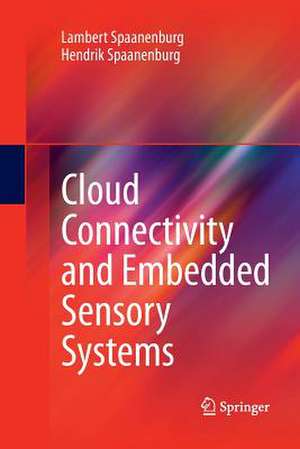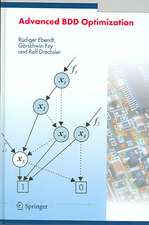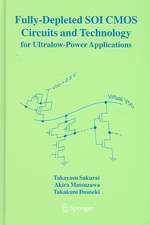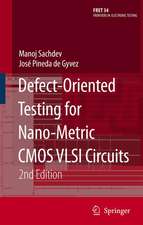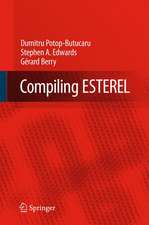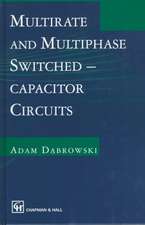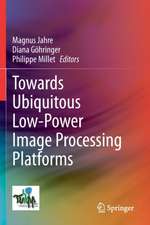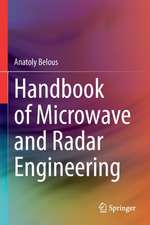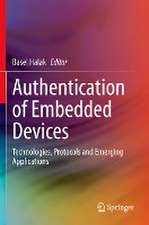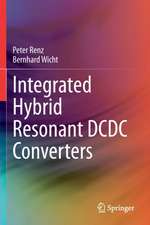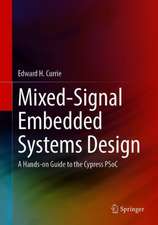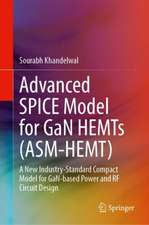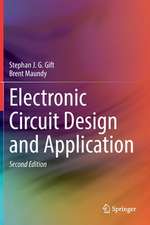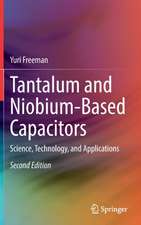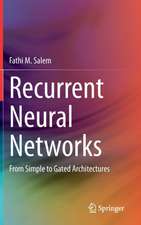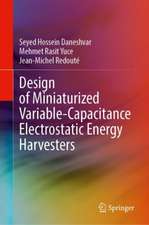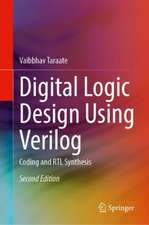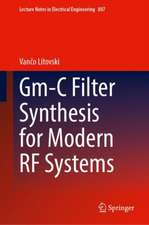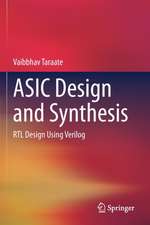Cloud Connectivity and Embedded Sensory Systems
Autor Lambert Spaanenburg, Hendrik Spaanenburgen Limba Engleză Paperback – 8 oct 2014
| Toate formatele și edițiile | Preț | Express |
|---|---|---|
| Paperback (1) | 577.40 lei 38-44 zile | |
| Springer – 8 oct 2014 | 577.40 lei 38-44 zile | |
| Hardback (1) | 951.29 lei 6-8 săpt. | |
| Springer – 2 dec 2010 | 951.29 lei 6-8 săpt. |
Preț: 577.40 lei
Preț vechi: 749.86 lei
-23% Nou
Puncte Express: 866
Preț estimativ în valută:
110.50€ • 114.94$ • 91.22£
110.50€ • 114.94$ • 91.22£
Carte tipărită la comandă
Livrare economică 10-16 aprilie
Preluare comenzi: 021 569.72.76
Specificații
ISBN-13: 9781489981912
ISBN-10: 1489981918
Pagini: 312
Ilustrații: XXIII, 285 p.
Dimensiuni: 155 x 235 x 16 mm
Greutate: 0.44 kg
Ediția:2011
Editura: Springer
Colecția Springer
Locul publicării:New York, NY, United States
ISBN-10: 1489981918
Pagini: 312
Ilustrații: XXIII, 285 p.
Dimensiuni: 155 x 235 x 16 mm
Greutate: 0.44 kg
Ediția:2011
Editura: Springer
Colecția Springer
Locul publicării:New York, NY, United States
Public țintă
Professional/practitionerCuprins
Introduction.- Ambient Intelligence Limitations.- Topological Considerations.- Software Infrastructure.- Network Safety and Security.- System Development.- Applications: Android-in-the-Cloud.- Wear-Free Transmission.- Body-Area Networks.- Patient Monitoring.- Environmental Monitoring.- Conclusion.
Textul de pe ultima copertă
Cloud Connectivity and Embedded Sensory Systemsby: Lambert SpaanenburgHendrik SpaanenburgSensory systems are meant to create awareness in space and time. They may be measuring the presence of an object or a condition, characterizing an object stream or a situational pattern, or even detect abnormalities that are to occur. This book provides new theory on the design of wireless sensor networks, based on concepts developed for large-scale, distributed computing environments known as “clouds.” It provides a single-source entry into the world of intelligent sensory systems, with a step-by-step discussion of building case studies that capture the requirements, taking into account practical limitations of creating ambient intelligence. The reader will not only achieve a better understanding of sensory clouds, but is also guided by examples of how to design such networks, taking the typical characteristics of diverse application areas into account.•Offers readers a single-source entry into the world of cloud-centric, embedded intelligent sensory systems;•Presents sensory networks in the context of “cloud computing”;•Promotes the notion of migrating software on virtualized hardware;•Emphasizes the role of redundant network communication and computation to optimize safety and security;•Distinguishes between cloud, swarm and flock computing, in order to make the extended network more intelligent and therefore less dependent on the quality of the individual sensors.
Caracteristici
Offers readers a single-source entry into the world of intelligent, embedded sensor networks Presents sensor networks in the context of “cloud computing”; Focuses on topological and communication constraints, while adding intelligence, security and safety to the overall desired system functionality Distinguishes between cloud, swarm and flock computing, in order to make the extended network more intelligent and therefore less dependent on the quality of the individual sensors
